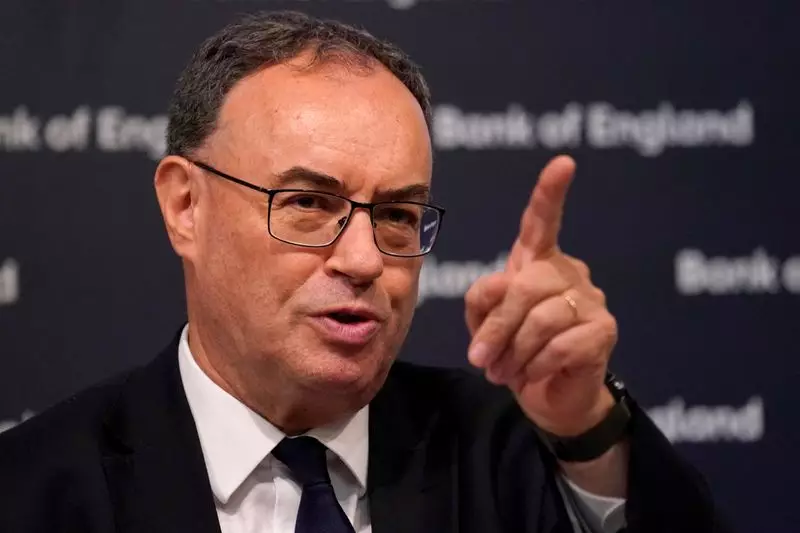As the global economy faces a complex web of challenges, the Bank of England (BoE) finds itself at a critical juncture. With inflation rates showing signs of moderating, discussions around potential interest rate cuts are gaining momentum. Recently, BoE Governor Andrew Bailey indicated to the Guardian that a more aggressive approach to rate reductions could be on the table, contingent upon favorable inflation data. Following August’s decision to cut rates for the first time in four years, the benchmark rate currently stands at 5%. This decision reflects a cautious but necessary shift in monetary policy aimed at supporting the UK economy amidst fluctuating economic conditions.
Bailey expressed optimism regarding the inflationary pressures that had previously dominated economic discourse. He noted that these pressures have shown less persistence than anticipated, which is a positive sign for the BoE’s monetary policy. Central banks generally strive to maintain price stability, and the prospect of easing inflation allows the BoE some flexibility in its policy decisions. However, the nuances of inflation trends require careful monitoring; as Bailey pointed out, sustained good news on inflation could spur the bank to adopt a more proactive attitude towards rate cuts.
While economic indicators are trending in a direction favorable to potential rate cuts, Bailey is acutely aware of the risks posed by ongoing geopolitical tensions, particularly in the Middle East. These conflicts have significant implications for global oil prices, an essential factor in the UK’s economic framework. Bailey acknowledged the tragic nature of these events and highlighted that even minor disturbances in oil supply could destabilize what he described as “stretched markets.” His statements suggest that the BoE must navigate a careful line between stimulating the economy and responding to external shocks that threaten inflation.
The Governor affirmed a commitment to maintaining stability within the oil market, noting efforts from various countries to ensure that energy prices do not spiral out of control. However, he raised an important caveat: there exists a threshold beyond which, should geopolitical situations worsen drastically, even committed efforts can fail to stabilize prices. This impending risk creates a puzzling dilemma for the BoE, as central banks generally rely on predictable market environments to implement effective monetary policy.
The Bank of England stands at an intricate crossroads, weighed down by inflation dynamics and external geopolitical pressures. As the central bank considers its next steps, it must strive for a delicate balance that promotes economic growth without exacerbating inflationary risks. The coming weeks will be crucial as investors closely watch the BoE’s November meeting for signs of policy shifts in response to evolving economic and geopolitical landscapes. The stakes are high; thus, the BoE’s decisions will not only impact the UK economy but could also resonate across global markets.

